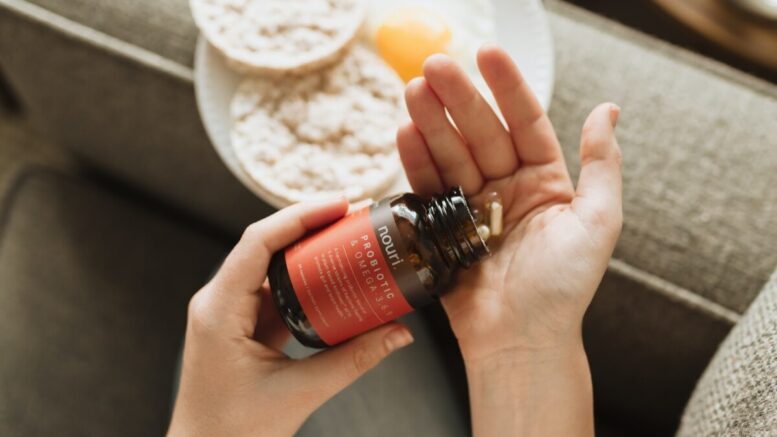Liposuction is a popular cosmetic procedure to remove excess fat deposits. While liposuction can effectively sculpt your body, the recovery process plays a crucial role in achieving the best results. One aspect of post-liposuction care that often goes overlooked is the role of nutrients in supporting the healing process. This article will delve into the world of supplements and liposuction. We’ll explore the nutrients that can aid your recovery journey and how to incorporate them.
Understanding Liposuction
Liposuction (lipoplasty) is a surgical procedure that can be performed by a plastic surgeon in Dallas. Liposuction’s primary goal is to remove stubborn fat deposits from various body areas. It is not a weight loss solution but a means to achieve a more toned and sculpted appearance. A surgeon inserts a thin tube (cannula) into the targeted fat deposits during the procedure. The cannula suctions out the excess fat.
The success of liposuction relies not only on the procedure itself but also on proper post-operative care and recovery. This is where vitamins and minerals come into play.
Vitamins and Minerals for Post-Liposuction Recovery
In post-liposuction recovery, your body requires a range of nutrients to support healing. Let’s delve deeper into the role of each of these essential nutrients:
Vitamin C: The Collagen Booster
Vitamin C (ascorbic acid) is a powerful antioxidant that plays a crucial role in collagen production. Collagen is the basic structural protein in your skin and connective tissues. It’s vital for wound healing and maintaining skin elasticity. After liposuction, adequate vitamin C intake can help:
- Minimize scarring
- Promote tissue repair
- Speed up recovery
- Foods rich in vitamin C include :
- Citrus fruits (oranges, lemons, grapefruits)
- Strawberries
- Broccoli
If your doctor recommends it, vitamin C supplements can also be beneficial during recovery.
Vitamin D: Bone Health and Immunity
Vitamin D is essential for bone health and immune system function. After liposuction, maintaining strong bones is crucial, as it can:
- Support recovery
- Help prevent complications like fractures
When exposed to sunlight, your body can create vitamin D. However, dietary sources and supplements may be necessary to ensure an adequate intake.
Foods rich in Vitamin D are:
- Fatty fish (salmon, mackerel)
- Fortified dairy products
Omega-3 Fatty Acids: Reducing Inflammation
Omega-3 fatty acids are recognized for their anti-inflammatory properties. In the context of liposuction recovery, these healthy fats can help in the following:
- Reduce postoperative inflammation
- Support cardiovascular health
- Smoother and more comfortable recovery process
- Foods rich in Omega-3 fatty acids are:
- Fatty fish
- Flaxseeds
- Walnuts
Iron: Anemia Prevention
Iron is an essential mineral for preventing anemia, a disease characterized by a low red blood cell count. Anemia can lead to fatigue and weakness, hindering your recovery efforts. Include iron-rich in your post-liposuction diet to maintain healthy iron levels.
Iron-rich foods are the following:
- Lean meats
- Beans and lentils
- Leafy green vegetables
Iron supplements may also be recommended if your doctor determines that you are at risk of anemia.

B Vitamins: Energy and Healing
During the post-liposuction recovery phase, your body requires extra energy to heal. The B-vitamin complex is essential for:
- Energy production
- Tissue healing
- Improve well-being.
Vitamin B-rich foods are:
- Whole grains
- Lean meats
- Leafy greens
Sometimes, your doctor may recommend B vitamin supplements to support your recovery.
Zinc: Wound Healing and Immunity
Zinc is a mineral known for its role in wound healing and immune function. After liposuction, ensuring that your body has sufficient zinc can aid in:
- Healing of incisions
- Prevent infections
Zinc-rich foods include:
- Meat
- Whole grains
- Dairy products
Supplements may be suggested if you are at risk of zinc deficiency.
Magnesium: Muscle Function and Relaxation
Magnesium is required for proper muscle function and relaxation. During the post-liposuction recovery phase, you may experience muscle discomfort or cramps. Magnesium can help alleviate these symptoms.
Eat magnesium-rich foods like:
- Seeds
- Whole grains
- Leafy greens
If needed, your healthcare provider may recommend magnesium supplements.
Probiotics: Gut Health and Immunity
Probiotics are beneficial bacteria that help maintain gut health and boost immunity. A healthy gut can aid in:
- Digestion
- Nutrient absorption
- Recovery
You can find probiotics in fermented foods like:
- Yogurt
- Kefir
- Kimchi
Probiotic supplements may be recommended to ensure a balanced gut microbiome during your recovery.
How to Incorporate Supplements into Your Post-Liposuction Routine
Consultation with a Healthcare Professional
Before adding supplements to your post-liposuction routine, consult a doctor. They can assess your needs and recommend specific supplements and dosages.
Dosage and Timing
Taking the proper dosage of supplements at the appropriate times is crucial. Your doctor can guide the timing and frequency of supplement intake.
Potential Interactions
Some supplements can interfere with medications or other supplements you’re taking. Your doctor can help you identify and prevent any potential interactions.
Conclusion
Incorporating the right nutrients into your post-liposuction routine can support your healing process. However, it’s crucial to do so under the guidance of a doctor to ensure safety and effectiveness. Remember that supplements are just one part of a comprehensive post-liposuction care plan. Follow your surgeon’s instructions to achieve the best outcomes from your liposuction journey.
